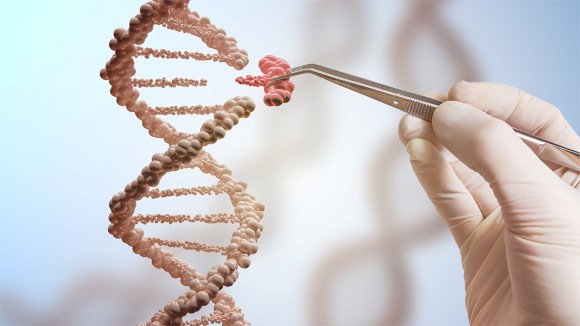 Mariangela Garofalo is Assistant Professor at University of Padua. Her research interests are in cancer research field, with particular focus on cancer drug delivery and development of oncolytic viral-based therapies. The laboratory activity deals with the definition of tools and techniques to improve the delivery of peptides, biological drugs and therapeutic agents using oncolytic adenoviruses and extracellular vesicles. Dr. Garofalo has been an Editorial Board Member for Scientific Reports since 2023.
Mariangela Garofalo is Assistant Professor at University of Padua. Her research interests are in cancer research field, with particular focus on cancer drug delivery and development of oncolytic viral-based therapies. The laboratory activity deals with the definition of tools and techniques to improve the delivery of peptides, biological drugs and therapeutic agents using oncolytic adenoviruses and extracellular vesicles. Dr. Garofalo has been an Editorial Board Member for Scientific Reports since 2023.
 Dumitru Andrei Iacobas is a Research Professor and Director of the Personalized Genomics Laboratory, Undergraduate Medical Academy, Prairie View A&M University. He developed the Genomic Fabric Paradigm and advanced mathematical algorithms to identify the personalized Gene Master Regulators whose silencing would selectively kill the cancer cells from a tissue. Dr. Iacobas has been an Editorial Board Member for Scientific Reports since 2023.
Dumitru Andrei Iacobas is a Research Professor and Director of the Personalized Genomics Laboratory, Undergraduate Medical Academy, Prairie View A&M University. He developed the Genomic Fabric Paradigm and advanced mathematical algorithms to identify the personalized Gene Master Regulators whose silencing would selectively kill the cancer cells from a tissue. Dr. Iacobas has been an Editorial Board Member for Scientific Reports since 2023.
 Weidong Xiao, PhD, is a Professor of Pediatrics and Grzegorz Nalepa Scholar for Molecular Therapy. He serves as Associate Director of the Gene and Cell Therapy Program at the Herman B Wells Center for Pediatric Research. Dr. Xiao obtained his Ph.D from UNC-Chapel Hill, where he started his research career on adeno-associated viral (AAV) vectors. He later held faculty positions at the University of Pennsylvania and Temple University before joining Indiana University. Dr. Xiao's research focuses on molecular virology, development of vectors for gene therapy, and treatment of hemophilia. Dr. Xiao has been an Editorial Board Member for Scientific Reports since 2022.
Weidong Xiao, PhD, is a Professor of Pediatrics and Grzegorz Nalepa Scholar for Molecular Therapy. He serves as Associate Director of the Gene and Cell Therapy Program at the Herman B Wells Center for Pediatric Research. Dr. Xiao obtained his Ph.D from UNC-Chapel Hill, where he started his research career on adeno-associated viral (AAV) vectors. He later held faculty positions at the University of Pennsylvania and Temple University before joining Indiana University. Dr. Xiao's research focuses on molecular virology, development of vectors for gene therapy, and treatment of hemophilia. Dr. Xiao has been an Editorial Board Member for Scientific Reports since 2022.

